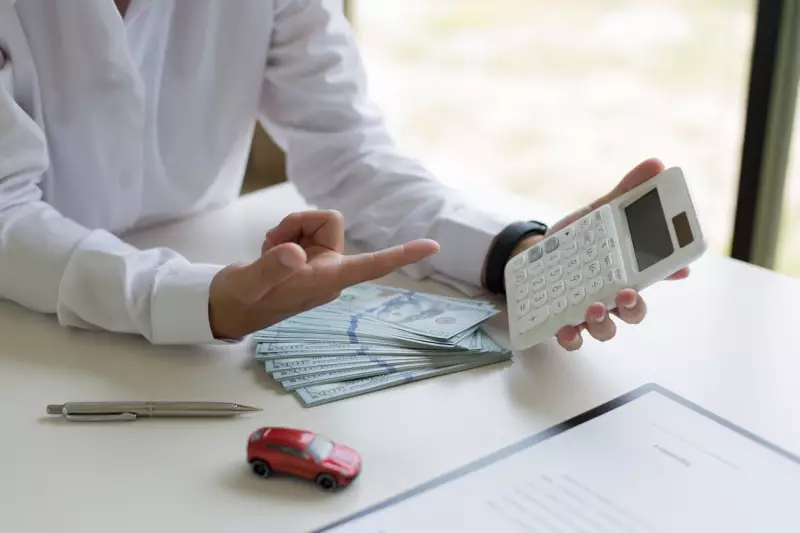Dealer fees are extra fees that car dealerships add to the price of a vehicle. These additional charges vary across different states and dealerships. Though dealership fees increase the price of cars, they have several advantages for prospective car owners. For instance, dealer fees linked to car documentation enable dealerships to streamline the processes of registering cars and obtaining their titles from the Department of Motor Vehicles. Many dealerships have several staff members whose exclusive duties include filling out documents for interested parties. Moreover, prospective car owners should request dealerships for detailed reports of these charges and bargain for a fair price before making buying decisions.
What Fees Should I Pay When Buying a Used Car?
It is a fact that dealer fees add to a car’s price. Prospective car owners may see a wide range of dealership fees listed when searching for a new vehicle. Some of these charges are negotiable, while others, like tax and license fees, are not. The charges that interested car owners should expect to pay when buying used cars include:
Sales Tax
Sales tax is a mandatory fee based on a car’s purchase price. Dealers may not decrease or increase this fee, as it is set by the state. A few states, like Delaware and New Hampshire, do not mandate the payment of sales tax fees when buying a used car. In Nevada, state regulations dictate that dealerships charge a sales tax of 8.25%, while in Alabama, it is 2%.
Registration and Title Fees
Title fees are associated with acquiring a title verifying ownership of a vehicle. Dealerships charge different title fees based on location. The cost of a title in Wisconsin is $164.50, while Hawaii state authorities charge just $5 for the same. Dealerships also do not control the registration fees when buying a used car. The charges associated with registering cars and acquiring titles are state-mandated dealer fees that are non-negotiable.
Documentation Fee
Acquiring a new vehicle involves a lot of paperwork. Documentation dealer fees cover the cost of preparing and submitting the forms required for car registration and the creation of titles. Documentation fees vary from state to state. Dealerships in Illinois may not charge more than $300 in documentation fees, while state regulations in Arkansas hold that local dealers may charge up to $129 for documentation.
Emissions Testing and Certification Fees
Some states, like Rhode Island, require that vehicles pass emissions inspections and be certified to have done so before they can be sold. The cost of vehicle emissions inspection tests varies from state to state. In most states, emissions inspections cost between $30 and $40 per test and are administered every two years.
Destination Fee
The destination fee is a non-negotiable charge that car manufacturers set. This dealer fee covers transporting vehicles from the manufacturing center to the distribution area and finally to the dealership. The car manufacturer charges the dealership fees to ship the car to the dealer’s center from wherever it was built or assembled. The dealer then includes this non-negotiable charge in the dealer fees.
How Much Are Dealer Fees On a Used Car?
Dealer fees for a used car vary based on dealership policies and location. Dealer fees like registration charges, documentation, and destination fees can significantly increase a car’s price. Dealer fees typically range from 8% to 10% of a given vehicle’s price. In North Carolina, residents pay a $699 dealer processing fee, a $52 title fee, and a 3% sales tax. In states like Arizona, Alaska, Alabama, Colorado, Idaho, and Montana, there is no cap on the dealer fees charged for documentation.
Moreover, other states have caps on dealerships' charges for this service. In California, car dealers cannot charge more than $85 for documentation. In Illinois and Louisiana, car dealers may charge up to $347 and $425 for documentation, respectively.
What Fees Are Negotiable When Buying a Car?
Some charges in dealer fees, like the title fee and sales tax, are fixed and non-negotiable. Moreover, some charges can be waived or reduced. These include fees that dealers pass on to consumers. Examples of negotiable fees when buying a used car include:
Dealer Prep Fee
The dealer prep fee refers to the charges incurred in preparing a vehicle for sale. Such preparations may include removing protective plastics from exterior surfaces and washing or wiping the car down. Prospective car buyers can negotiate with dealers to reduce this fee.
Advertising Fee
Car dealers often advertise their products on the Internet and other mass television. To recover the costs of running promotional campaigns, they may opt to charge advertising fees on every vehicle they sell. The fee may be in the hundreds or thousands of dollars. Prospective car buyers could negotiate to have this price reduced.
Reconditioning Fee
Vehicle reconditioning refers to processing a car through multiple inspections to implement repairs that will make it appear new and aesthetically appealing. Some dealers charge thousands of dollars for reconditioning, making vehicles stand out in showrooms. Prospective car buyers can negotiate and bargain to reach a reduced reconditioning fee. They could assert that all charges outside the original manufacturer’s invoice are additional fees that can be reduced or waived. Buyers could also compare the price of their desired car model in different dealerships before purchasing.
9 Fees to Never Pay a Car Dealership

Some car dealers may quote unnecessary fees to increase their profits. Nine fees that prospective car buyers should not pay to car dealers include:
1. VIN Etching Fee
VIN etching involves imprinting a car’s vehicle identity number on the car window or another surface in its interior or exterior. Car dealers often overcharge for this unnecessary service.
2. Fabric Protection Fee
Fabric protection services from dealers are often overpriced. Car buyers can obtain the same service at cheaper prices from independent sources.
3. Paint Protection Fee
Some dealers offer paint protection services as an incentive to increase profits at the buyer’s cost.
4. Extended Warranty Markup
Extended warranty offers are inadvisable because they instigate a contract between the dealer and buyer. In accepting this service, the buyer may be committing to costly repair services in the future if the car experiences mechanical problems.
5. Dealer Prep Fee
Dealer preparation services like window tints may involve third-party vendors whose services increase the car’s perceived value and price.
6. Advertising Fee
Prospective car buyers should not be charged for dealers’ advertising campaigns. Buyers often find car listings on third-party websites that have subscription fees that they pay.
7. Rustproofing Fee
Some dealers quote exorbitant prices for services such as rustproofing. Car buyers can find similar services offered at more affordable prices by independent sources online.
8. Nitrogen Fill Fee
Nitrogen fills are unnecessary for ordinary passenger vehicles. Additionally, buyers who opt for this service have to invest in regular refills that cost between $5 and $7. Moreover, not all car garages offer this service.
9. Credit Insurance Fee
Some car dealers use credit insurance as an add-on service fostered on unsuspecting buyers with poor credit. This will result in increased costs for such buyers in the future.
Every consumer interested in buying a used car should know that dealer fees include unavoidable, state-mandated fees. These include sales tax and documentation fees. Moreover, dealers include other charges like advertising fees in car price quotations. Prospective car buyers must understand the importance of questioning dealers about such non-mandated fees to avoid overpaying. They must also exercise caution when dealers offer them additional services like paint and fabric protection at an increased fee. Such offers may have hidden costs related to third-party contractors.




















